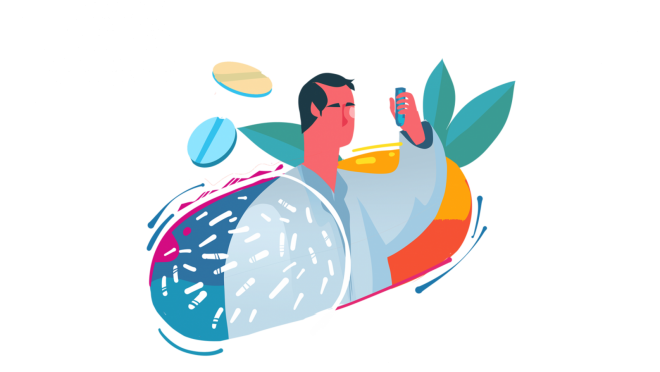Being a pharmacist in Bangladesh
Being a pharmacist in Bangladesh

Making people understand the value of pursuing a career in pharmacy is not simple, but if one tries their luck out, it can hold many doors of opportunity open
My interest in pharmacy came about in my teenage years, overhearing discussions between my older siblings and cousins about the Dhaka University Department of Pharmacy. They used to explain, enthusiastically, that Dhaka University offers a programme where you can study how to make medicines.
Dealing with medicines requires extreme precision and only students with a genuine aspiration could enrol to this programme. After I completed my higher secondary school certificate (HSC) exam, I enrolled with the Pharmacy Department at North South University (NSU).
The road to becoming a pharmacist paved itself as I progressed through higher tiers of education pertinent to pharmaceuticals. But that road winds through a series of unique and interesting disciplines that I had to follow through.
Strengthening interpersonal and soft skills
Unique assignments, such as collecting 100 prescriptions, 100 drug inserts and Monthly Index of Medical Specialties (MIMS) from doctors, kept our study life interesting. Later we understood that these assignments were designed to help us connect with patients, retail pharmacies, visiting doctors, and visiting hospitals.
All these creative assignments helped to improve our soft skills. I quickly realised that my habits had changed and I never missed an opportunity to read any inserts or prescriptions that I came across. If someone talked about their health issues, I would instinctively pay attention.
Picking a Major within pharmaceutical education
Studying in this field comes with a wide range of employment opportunities. You can pursue a career in pharmaceutical marketing, production, research, and development, or hospital pharmacy as a pharmacist.
With rising demand and competition, it is wise to choose a major early in the years of undergraduate studies. My decision-making process however was a little unusual. I once ran into a professor who claimed to be a kidnapper. He ‘persuaded’ a few of us to visit his lab and observe the work of his older pupils.
Making good use of our time at the labs helped us to decide our major in the right time.
First day in the Pharmacology Laboratory
This discipline comes with funny encounters. As second-year students we smelled mouse excrement for the first time at the pharmacology lab, where our friendly professor would have us go ahead of our designated time. We could barely keep a straight face. But with time, we grew accustomed to the funny smelling laboratory.
For the sake of advancing medical science, investigations ran on rats as test subjects. We would study the rodents’ behaviour and reactions to certain treatments.
And since we were able to start research for our final year project before our contemporaries, owing to our early laboratory involvement, we had an edge over them. The point is to get a headstart whenever and wherever possible and cash in on it.
Perks of being a part of a group with similar interests
A few of us continued our research till our university’s very last day. Three of us from that group were virtually through with our long-awaited PhD, and four enrolled in PhD programs at different universities globally with full scholarships.
Being in a group with similar interests boosts morale because motivation can sway too quickly. We could help evaluate each other in case of slacking and that way all of us progressed steadily.
The journey was not as easy as it may appear but the essential strategy was never to give up.
Pharmacy as a field of study to a lay person
To this day, I am the first and only pharmacist in my entire family. Naturally, they were not well-informed about my role as a pharmacist; most Bangalee families still find it difficult to make sense of pharmacy.
It took me a while to make them understand that a pharmacist not only knows how to dispense pharmaceuticals but that a pharmacist’s role contains a wide range of healthcare topics as well.
I tried to counsel them on different occasions, but most of them were reluctant to understand, until my grandmother once experienced a medical emergency from hypoglycemia; a condition in which the blood sugar (glucose) levels drop lower than normal. The entirety of my family was blown away by how well I conveyed my grandmother’s medical history to the doctor.
Career as a pharmacist and why to pursue it
When the world was bewildered during Covid-19, pharmacists stepped forward and joined the frontlines. I was working on my PhD thesis amidst the pandemic and also keeping track of the latest developments of the virus.
Friends and family used to contact me for any information that could help them with the situation. As a researcher and pharmacist, I had the good fortune of performing my laboratory work using the aseptic technique – which is to use practices and procedures to prevent contamination from pathogens – that enabled me to brief my friends via social media videos during Covid-19.
Pharmacist as a profession helps to touch lives in both a personal and public way.
Disclaimer: This article first appeared on TBS on 28 April 2022 and can be found at Being a pharmacist in Bangladesh


